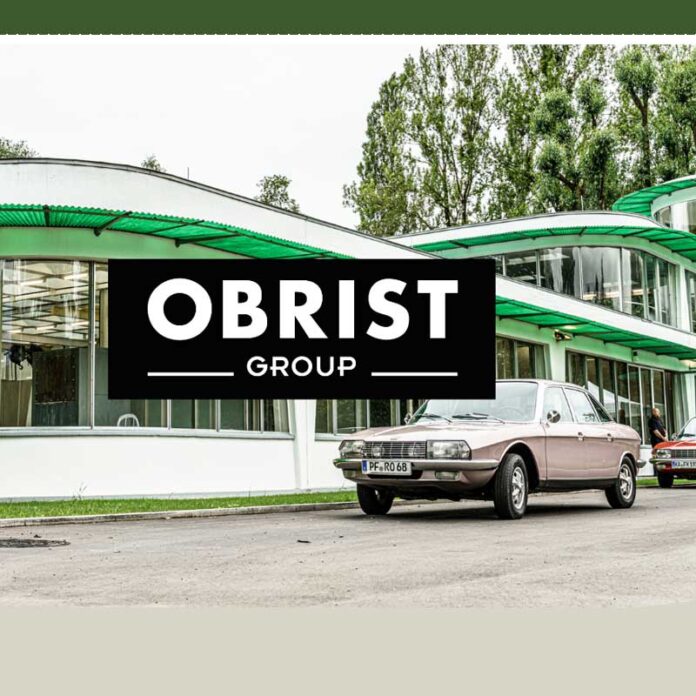
The Obrist Group is delighted with the growing international interest in methanol production plants. The group has developed a patented process to produce methanol from solar energy, which can be used as a universal energy source for industrial production, the building sector (heat) and transportation (fuel for cars). The process is “climate-positive” because it removes more carbon dioxide from the atmosphere during methanol production than is released during subsequent combustion. It is therefore also referred to as “below zero” or “green methanol”.
The Obrist Group recently entered into a new global alliance with EWU Tech Ltd, DSE Green Technology Holdings with over 25 European technology partners and Global Enterprises Ltd to build methanol production plants using the patented Obrist process. Concrete projects are planned in Namibia, Egypt, Thailand and the USA.
Talks on methanol economy well advanced
“More and more countries are recognizing the possibility of achieving their climate targets by switching to a methanol economy without having to fear losses in economic growth,” says company CEO Frank Obrist on his discussions with economic and energy politicians from all over the world.
Methanol would allow the existing infrastructure for fossil fuels to continue to be used, from transportation in pipelines or tankers to industrial energy use and cars with combustion engines. This would make a methanol economy “orders of magnitude cheaper” than switching to electricity or hydrogen as an energy source, because completely new infrastructures would have to be built for both.
“The EU is trying out an energy transition with electricity and hydrogen, but many other countries are apparently opting for methanol as a universal energy source”, the head of the Obrist Group has noted in discussions with politicians outside the European Union. He admits: “Large-scale methanol production only makes sense in areas near the equator where solar energy is available in abundance. But because transportation is so easy and cheap, it is worth producing at the equator and distributing methanol through pipelines or tankers to where the energy is needed.”
Methanol instead of liquid gas after LNG expansion stop in the USA
Methanol is liquid at normal temperature and, unlike hydrogen, does not require any special pressure vessels for transportation. According to a recent study by the Eco-Institute on behalf of NABU (German Nature and Biodiversity Conservation Union), tankers could be powered by methanol to minimize the environmental impact. According to the study, this would be significantly more environmentally friendly not only than the use of heavy fuel oil, diesel or ammonia, but also than the use of liquefied natural gas (LNG). This goes hand in hand with the general questioning of LNG transportation by the US government since the beginning of this year on the grounds that LNG is ultimately harmful to the climate.
“Green methanol, which is transported by methanol-powered tankers, should also be given greater consideration in the European Union and especially in Germany following US President Joe Biden’s decision to stop the expansion of LNG exports”, argues Frank Obrist. It is true that methanol production within the EU is not economically viable due to the low solar intensity in Europe. “But investing in the construction of production plants in sunnier countries with supply contracts for methanol supply in Europe is very much an option”, the CEO appeals to politicians to explore this possibility to strengthen energy supply security in the EU.
Hydrogen for methanol production can be obtained from the air anywhere
The Obrist Group points out that, in addition to a lot of solar energy, its production plants also require water on site to generate hydrogen by means of electrolysis, which is essential for the production of methanol. According to the company, water can be extracted from the air for the most part anywhere in the world. Even an air humidity of just ten percent, which is common in desert areas, is sufficient for methanol production, the company has found in prototype plants. This means that electrolysis plants can be set up in deserts and on wasteland that is infertile and cannot be used for any other purpose.
The Obrist Group attributes the increasing demand from all over the world to the presentation of the book “Prosperity and Economic Growth Without Regrets: Climate Rescue Yes – Deindustrialization No” (ISBN 978-3-98674-104-4) at COP28 in Dubai at the end of last year. The book, published by the global think tank Diplomatic Council in consultative status with the UN, describes in detail how green methanol is suitable as a global energy source to initiate the transition away from the burning of fossil fuels.








